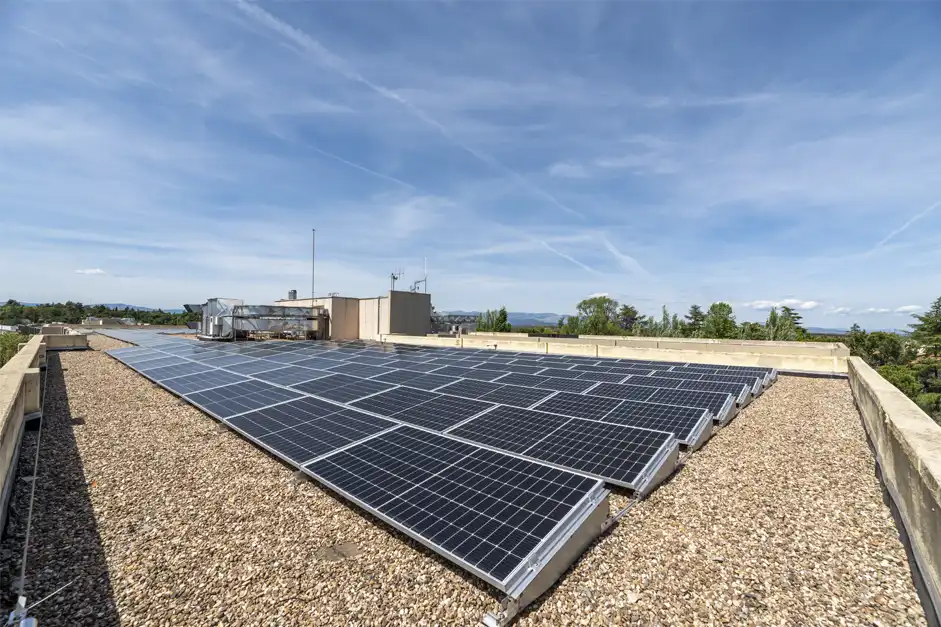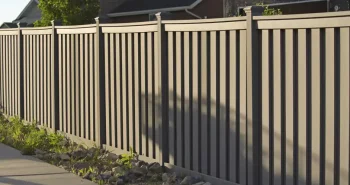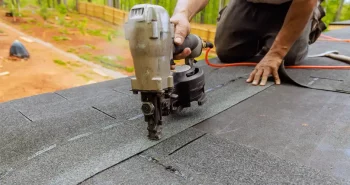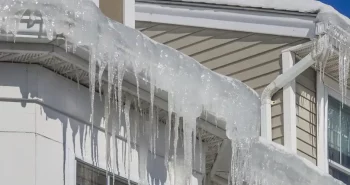Commercial roofing systems play a crucial role in protecting businesses’ assets and ensuring the safety and comfort of employees and customers alike. However, many new building owners focus on the interior or eye-level exterior features. In reality, commercial roofing is an integral part of the building and offers various advantages to businesses. To help you learn more, we’ve put together a complete guide to commercial roofing, from the different types of commercial roofing systems to installation, maintenance, and repairs.
What is a Commercial Roofing System?
A commercial roof is a type of roofing system used on commercial buildings, such as shopping malls, warehouses, retail buildings, factories, office buildings, and more. It’s quite large, more complicated to install than residential roofs, and often completely flat. There are also several different roof types for commercial buildings, including different materials and installation processes.
The Difference Between Commercial and Residential Roofs
Commercial roofing systems and residential roofs are similar in function, but they’re quite different when it comes to materials and installations. Commercial roofs typically use more industrial materials, such as singly-ply, concrete, tar, gravel, modified bitumen, and more. These are applied in layers over decking and don’t tend to have a very steep slope. Having a commercial flat roof offers unique advantages, such as the ability to do maintenance on the structures and a lower overall cost. It also requires strategic drainage and regular inspections to ensure things are working well. Plus, flat roofs are actually more cost-effective for building owners.
On the other hand, residential roofs use different materials—the most common being asphalt shingles—and have larger slopes. They’re built to function efficiently but also to provide a higher aesthetic component to a home.
Different Types of Commercial Roofing Types
Commercial roofing material and style can vary based on the type of system in place. Oftentimes, owners don’t get to choose the type of roof for their commercial building unless they need a replacement or are starting from scratch. Still, it’s recommended to understand your options, what you have, and what you could get if you ever need to make any changes to your infrastructure. The most common types of roofs for your commercial building are as follows:
Single Ply Roofing
Single-ply roofing offers a lightweight and flexible solution for commercial buildings and is one of the most popular options. Singly-ply includes building from materials such as TPO, PVC, and EPDM, which are membranes that have unique structures, installations, and benefits. All single-ply roofing tends to carry a high UV resistance and can withstand various weather extremes. This results in long-term durability, energy efficiency, and low maintenance. When properly cared for, serious commercial roof repair might not be needed for years. However, it’s still important to get regular commercial roof inspections to ensure that everything is functioning as it should.
Thermoplastic Polyolefin (TPO)
TPO roofing membranes are one of the most common single-ply options. It typically uses polypropylene and ethylene-propylene rubbers that have been combined and polymerized. Their heat-reflective properties can help reduce cooling costs during hot summer months, contributing to energy efficiency and long-term savings for businesses. Additionally, TPO roofs are known for their ease of installation and repair, which can minimize disruptions. TPO is available in several colors.
Polyvinyl Chloride (PVC)
PVC roofing systems are made by layering one sheet of PVC, a middle sheet of polyester reinforcement, and a top layer of PVC treated for UV resistance. PVC roofing is best known for its durability, weather resistance, and fire-retardant properties. They’re also highly flexible and can withstand extreme temperatures. With proper maintenance, PVC roofs can offer decades of reliable performance. They’re also recyclable and environmentally friendly.
Ethylene Propylene Diene Monomer (EPDM)
EPDM roofing membranes are made from synthesized rubbers from oil and natural gas. They offer excellent protection against UV exposure and ozone light. It’s also resistant to several chemicals, tears, and punctures. EPDM roofs require minimal maintenance and offer cooling reflective properties.
Photovoltaic (PV) Solar Panels
Integrating solar panels into your commercial roofing system reduces energy bills and helps your organization become more sustainable. PV solar panels harness the sun’s power to generate electricity, allowing businesses to reduce their carbon footprint and potentially qualify for tax incentives or rebates. Although it can be a higher upfront investment, the long-term cost savings are often worth it.
Modified Bitumen
Modified bitumen roofing combines rubber’s flexibility with traditional bitumen’s strength, offering commercial buildings a durable and waterproof solution. They’re made using multiple layers of reinforced materials such as asphalt and chemical polymers, which create durability and resistance to weather, punctures, and fire.
Metal Roofs
Metal roofing systems offer unmatched durability, longevity, and energy efficiency for commercial buildings. Available in various materials such as steel, aluminum, and copper, metal roofs can withstand harsh weather conditions, including high winds, heavy rain, and snow.
Built-Up Roofing System (BUR)
Built-up roofing, also known as tar and gravel roofing, has been a staple in the commercial roofing industry for decades. Comprising multiple layers of asphalt, ply sheets, and gravel or other aggregate materials, BUR systems are waterproof and durable. However, installation requires intensive labor, so it’s important to find a contractor with experience in this type of material.
Green Roofs
Green roofs, also called living roofs or eco-roofs, offer numerous environmental benefits while enhancing the aesthetics of commercial buildings. By incorporating vegetation, soil, and drainage layers, green roofs provide natural insulation, reduce stormwater runoff, and improve air quality. Additionally, green roofs can extend the lifespan of roofing membranes, reduce energy consumption, and create enjoyable outdoor spaces for employees or tenants. However, they’re not suitable for every building, so it’s important to carefully plan with your contractor ahead of time to ensure it’s sustainable before getting started.
Steep Sloped Roofs
Normally, steep or pitched roofs are used in residential properties, but there are a few occasions where they’re used for commercial buildings. Steep slopes are used for the design elements of commercial buildings such as universities, hotels, or other hospitality buildings. They’re often more aesthetic than the flat roofs typically seen on commercial buildings, which can be important for profit and overall success. Materials used for these types of roof projects vary, so it’s best to talk with a professional to understand your options and the associated costs.
The Importance of Good Commercial Roof Installation
Although residential roofs definitely require professional installation, the process of taking on a commercial roofing project is even more complex. For one, commercial properties are often huge and the area of the roof is much larger than residential properties. This means contractors need to be able to install the entire thing seamlessly so that it’s efficient and functional. In fact, a commercial roof is typically tens of thousands of square feet in size and can be several stories tall. This requires the use of more specialized equipment and experience dealing with heights. When a large commercial roof is properly installed, it will require less maintenance and have fewer issues. However, a bad install can result in leaks, water damage, structural issues, and more. Therefore, finding the right contractor is just as important as choosing between the types of commercial roofing materials.
How to Find a Reputable Commercial Roofing Contractor
Regardless of what type of roofing membrane you’re interested in, it’s important to find an experienced commercial roofing contractor. Although there are similar skills between commercial and residential roofers, commercial installation is more complex and requires a unique set of skills and experience. That’s why hiring a commercial roofer who is reliable, experienced, and specially trained is so important.
First Star Exteriors is here if you’re looking for a skilled and reputable roofing contractor to help with your commercial structures. As one of the region’s leading roofing companies, our team will help you avoid bad roofing jobs and leave you with a beautiful roofing installation that lasts for years. Our skilled contractors understand how to determine what materials will work best for your budget and vision. They also know what it takes to install a new roof on a commercial building to maximize performance, aesthetics, and longevity.
When you’re ready to get started on your new roof selection and installation, contact First Star Exteriors. We believe there’s a perfect balance between hands-on, personable treatment, quality of work, and speed of delivery. The roofing contractors at First Star Exteriors always take the time to understand your needs and communicate effectively from the first quote to the last nail placed. To learn more about our commercial and residential roofing options or to get a quote from us today within 48 hours, contact us at (479) 267-4800 or fill out our contact form here.





